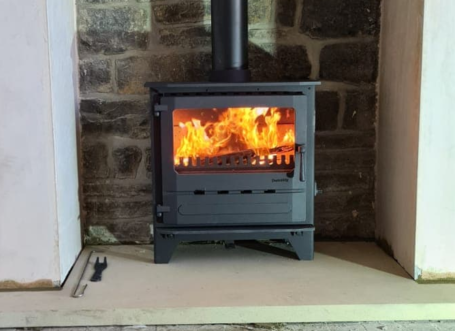Solid Fuel: A Cost-Effective and Resilient Alternative, Especially Amid Gas Price Hikes: In recent times, soaring gas prices have made consumers and businesses alike reevaluate their energy choices. While gas remains a popular choice, it’s important to recognize that solid fuel offers unique advantages, especially in the face of fluctuating gas prices. In this blog, we’ll explore why solid fuel stands out as a cost-effective and resilient alternative, especially in times of gas price hikes.
- Cost-Effective Amid Gas Price Hikes
Gas prices have become increasingly unpredictable, causing financial strain for many households and industries. In contrast, solid fuels like wood, coal, and biomass offer a stable and often more affordable energy source. When gas prices surge, which they tend to do during supply disruptions or geopolitical tensions, solid fuel users can enjoy consistent energy costs without the sudden shocks to their budgets.
- Energy Independence
Solid fuel provides energy independence, which becomes especially valuable when gas prices skyrocket due to external factors. Users of solid fuels can source their energy locally or even produce it themselves, reducing their vulnerability to external energy market fluctuations. This resilience can be vital during periods of gas price hikes or shortages.
- Renewable Options
Many solid fuels are renewable, meaning they can be sustainably harvested or produced. In contrast, natural gas is a finite resource that becomes scarcer and more expensive as reserves deplete. Choosing solid fuels allows you to contribute to a more sustainable future while avoiding the uncertainty of depleting fossil fuel supplies.
- Reliability During Extreme Price Volatility
Solid fuel can provide a reliable energy source, even during extreme price volatility in gas markets. Unlike natural gas, which can be subject to sudden price spikes during supply disruptions, solid fuels can be stockpiled and used as needed, ensuring consistent heating and energy when you need it most.
- Reduced Carbon Footprint
Modern solid fuel technologies can be designed for high efficiency and low emissions, making them an environmentally responsible choice. When used responsibly and with the right equipment, solid fuels can have a lower carbon footprint compared to natural gas, further emphasizing their viability as a sustainable energy source.
- Versatility for Various Applications
Solid fuels can be used for a wide range of applications beyond heating, including cooking, electricity generation, and industrial processes. Their versatility can be especially valuable in regions where access to multiple energy sources is limited, offering diverse solutions for various energy needs.
- Resilience and backup
Solid-fuel appliances can serve as reliable backup systems during power outages or gas shortages. In emergencies, you can still cook, heat your home, or generate electricity with solid fuel, providing an additional layer of resilience and peace of mind for your household or business.
Conclusion
In an era marked by unpredictable gas price hikes, solid fuel emerges as a cost-effective, resilient, and sustainable alternative for energy consumers and businesses alike. Its advantages include stability in energy costs, energy independence, renewability, reliability during extreme price volatility, reduced carbon footprint, versatility, and dependable backup capabilities. When considering your energy options, particularly in the face of recent gas price fluctuations, solid fuel stands out as a viable and dependable choice for a wide range of applications.


